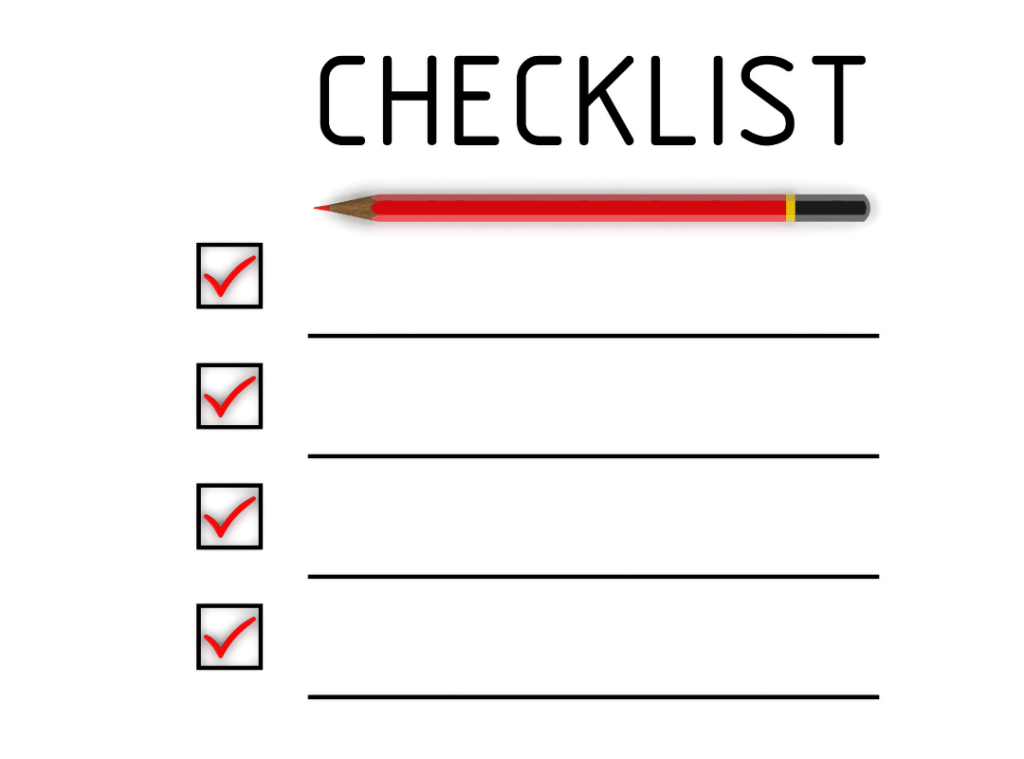Caring for Aging Parents Checklist: A Simple Guide

Caring for Aging Parents Checklist: A Practical Guide
Imagine steering a ship through foggy waters, unsure of what lies ahead; this is often how you might feel when caring for aging parents. They’re counting on you, but where do you start? A practical checklist from The Valencia Home by MD Senior Living can serve as your compass, guiding you through essential aspects like health care, finances, and emotional support. As you explore this guide, you’ll discover the key elements that ease your journey and guarantee your parents receive the care they deserve. What vital steps might you be overlooking?
Caring for Aging Parents checklist
Caring for aging parents can feel overwhelming, but having a structured checklist can make the journey smoother and more manageable. Start by creating a caregiving plan that details family roles. This guarantees everyone knows their responsibilities and can support one another.
Consider your parents’ pets as well; if they relocate, making arrangements for their furry friends is crucial.
Next, research various care options, such as in-home care, personal care homes, and senior living facilities. Each choice has unique benefits, so understanding these can help you make informed decisions.
Schedule regular meetings with your parents’ doctors to stay updated on their health and treatment plans. This also allows you to ask questions and express any concerns.
As circumstances change, reassess your caregiving plans periodically. Open communication with your parents is essential; it helps you adapt to their evolving needs and preferences.
Aging parents checklist
As you navigate the complexities of supporting aging parents, having an extensive checklist can greatly ease your responsibilities.
Start by creating a caregiving plan that outlines family roles and responsibilities. This clarity helps everyone involved understand their part in providing care.
Next, research various available options, such as in-home care, personal care homes, or senior living facilities. Consider your parents’ preferences and needs when evaluating these options.
Schedule regular check-ups with their doctors to stay updated on their health and adjust the care plan accordingly.
Don’t forget to monitor their medications, guaranteeing they adhere to prescribed schedules.
Also, keep an organized document of essential medical information, including contacts and health records, to streamline their care.
Lastly, have open conversations about their wishes regarding aging and end-of-life decisions. This can foster understanding and comfort for both you and your parents.

How to help aging parents
While steering through the challenges of helping aging parents, it’s essential to approach the situation with empathy and understanding.
Begin by engaging in open conversations about their needs and preferences, ensuring they feel heard and respected. Regular check-ins can help reassess their requirements and adjust care plans as necessary.
Create a caregiving plan detailing family roles, so everyone knows their responsibilities. This not only eases the burden but also fosters a sense of teamwork.
If your parents have pets, consider arrangements for their care if relocation becomes necessary.
Attend medical appointments and maintain a health information sheet to stay informed about their health. This will help you track medications and better understand their medical conditions.
Encourage your parents to share their desires regarding care and living arrangements, allowing for decisions that align with their values.
Lastly, research various care options together, whether in-home care or senior living facilities so that they can feel involved in their choices.
Your support and proactive approach can significantly improve their quality of life, ensuring they feel safe and valued as they age.
Aging parent’s finances checklist
Managing your aging parent’s finances can feel overwhelming, but a structured approach can make the process smoother. Start by gathering all pertinent information and documents. This checklist will help you guarantee nothing is overlooked.
| Financial Aspect | Action Steps |
| Public Benefits | Investigate eligibility for Medicare, Medicaid, and veterans benefits. |
| Insurance Review | Assess existing health insurance and retirement plans for coverage. |
| Legal Documents | Organize wills, power of attorney, and advance directives. |
Next, identify any outstanding debts and create a repayment plan. Understanding any potential tax deductions related to their healthcare expenses is also essential. They should also regularly review their financial situation, as needs may change over time.
Don’t hesitate to consult a financial planner specializing in elder care. They can provide tailored advice and resources that align with your parents’ unique circumstances. By taking these steps, you’ll help manage their finances effectively and give them peace of mind as they navigate this new chapter in life.
Questions to ask aging parents checklist PDF
Maneuvering your aging parent’s finances is just one piece of the puzzle; understanding their thoughts and feelings about aging is equally essential.
Engaging in open conversations can help you better support them. Consider using the following checklist to guide your discussions:
- What are your biggest concerns about aging? This helps identify their fears and needs.
- How do you envision your living situation in the coming years? Understanding their preferences for care can guide future decisions.
- What medical care options do you feel comfortable with? Discussing their wishes regarding treatment can clarify their values.
- What legacy do you wish to leave behind? This opens a dialogue about their desires for remembrance and significance.
AARP checklist for elderly parents
Caring for your elderly parents can feel overwhelming, but having a structured approach can make a significant difference. The AARP checklist for elderly parents provides a clear framework to help you manage their care effectively.
Start by evaluating their living situation. Is their home safe and accessible? Consider necessary modifications to prevent falls or accidents.
Next, review their health needs. Regular medical appointments are essential, so ensure they’ve transportation and assistance during visits. It’s also important to keep track of medications—set up a system for refills and compliance.
Don’t forget about social connections. Encourage your parents to engage in community activities, which can combat feelings of isolation.
Additionally, discuss their preferences regarding long-term care options, whether it be in-home support or assisted living facilities.
Lastly, open conversations about their wishes and fears as they age should be facilitated. This dialogue can ease emotional stress and guarantee everyone is on the same page.

Checklist for elderly parents’ finances
As you navigate the complexities of your elderly parent’s care, paying close attention to their financial situation is important. Ensuring their financial stability can significantly impact their quality of life.
Here’s a checklist to guide you through this process:
- Investigate Public Benefits: Look into Medicare, Medicaid, and veterans benefits programs to see what your parents may qualify for.
- Review Insurance Policies: Check their health insurance and any long-term care insurance to understand coverage for medical services and necessary treatments.
- Organize Essential Documents: Gather important financial documents, including bank statements, tax returns, and insurance policies, to maintain clarity and accessibility.
- Consult a Financial Advisor: Engage a professional specializing in elder financial planning to navigate the complexities of their financial needs and investments.
Aging parents checklist printable
Steering through the challenges of caring for aging parents can feel overwhelming, but a well-organized checklist can provide clarity and direction. A printable checklist allows you to track essential tasks, ensuring nothing falls through the cracks. You can customize it to fit your parents’ needs while organizing everything.
Here’s a simple checklist to get you started:
| Task | Status |
| Schedule regular doctor visits | [ ] |
| Review medication list | [ ] |
| Discuss financial arrangements | [ ] |
| Plan for emergency contacts. | [ ] |
| Assess home safety | [ ] |
Using this checklist encourages open communication with your parents and other family members. Regularly updating it can help you adapt to changing needs, ensuring they receive the best possible care. Please print it out, keep it handy, and check off tasks as you complete them. This approach not only brings peace of mind but also reinforces your commitment to supporting your aging parents during this critical stage of life. Together, you’ll navigate the journey with love and understanding.
Caring for aging parents at home
Steering through the challenges of caring for aging parents at home can feel intimidating, but with the right approach, it can also be a rewarding experience.
To create a supportive environment, consider these key steps:
- Assess Needs: Regularly evaluate your parents’ physical and emotional requirements. Understanding their needs helps you provide the right support.
- Establish Routines: Daily schedules for meals, medication, and activities foster a sense of stability. Routines can ease anxiety for both you and your parents.
- Communicate Openly: Keep lines of communication open. Regular check-ins can help everyone voice concerns and adjust care plans as needed.
- Seek Support: Don’t hesitate to reach out for help. Whether it’s family involvement or professional services, having a support network can lighten your load.
Elderly Care worksheets
When caring for elderly parents, utilizing worksheets can be a game-changer in organizing and managing their care.
These tools help you track essential information, from medical appointments to daily routines, ensuring nothing falls through the cracks. Create a health management worksheet that lists medications, dosages, and refill dates to help you monitor adherence effectively.
Next, consider a caregiving schedule worksheet to outline each family member’s responsibilities. This not only clarifies roles but also fosters teamwork, reducing stress.
You might also benefit from a financial worksheet to track expenses related to their care, including insurance details and any public benefits they may qualify for.
Keep a separate worksheet for emergency contacts and medical professionals, ensuring easy access during urgent situations.
Regularly reviewing and updating these worksheets will help you adapt to your parents’ evolving needs, promoting a smoother caregiving experience.
Things to discuss with aging parents
Engaging in open conversations about their needs and preferences with your aging parents can significantly improve their quality of life.
These discussions help you understand their thoughts and feelings, allowing you to support them effectively.
Here are some essential topics to cover:
- Living Arrangements: Talk about their current living situation and whether any changes are needed for safety or comfort.
- Healthcare Preferences: Discuss their medical care desires, including treatments they’d or wouldn’t want in serious situations.
- Financial Planning: Review their economic situation, including healthcare and living expenses budgets, ensuring they feel secure about their future.
- Legal Matters: Address essential documents like wills and power of attorney, ensuring everything is in place while they can still make decisions.
Questions to ask your aging parents
How can you guarantee your aging parents feel heard and supported during conversations about their future? Start by asking open-ended questions, encouraging them to express their thoughts and feelings. Here are some essential questions to reflect on:
| Category | Questions | Purpose |
| Health | What health concerns do you have? | Understand their medical needs and preferences. |
| Living Arrangements | How do you feel about your current living situation? | Gauge their comfort and safety in their environment. |
| End-of-Life Wishes | What are your wishes regarding medical care? | Respect their desires for future care and treatment. |
These questions help create a safe space for dialogue. Be patient and listen actively, validating their feelings and concerns. This approach strengthens your relationship and equips you with crucial information to support them effectively. Regularly revisiting these conversations allows for adjustments and reassures them that their voices matter in decision-making. By fostering open communication, you empower your aging parents to share their needs and preferences, paving the way for a more respectful and compassionate caregiving journey.
Caring for your aging parents is like tending to a delicate garden; it requires patience, understanding, and nurturing. At The Valencia Home by MD Senior Living, we believe that by following this checklist and engaging in open conversations, you can create a supportive environment where their needs are met and their dignity is upheld. Remember, every small act of care can become a stronger bond, ensuring they feel loved and valued. Embrace this journey compassionately, and you’ll grow through the experience together. For more information or assistance, please call us at 480-605-4002.
Questions About Caring for Aging Parents
- How to cope with caring for aging parents?
Coping with caregiving starts with prioritizing self-care and seeking support from family, friends, or caregiving professionals. Establishing a routine, setting realistic boundaries, and connecting with local resources, such as senior care facilities or community programs, help share responsibilities. Joining a caregiver support group can also provide emotional relief and practical advice. - Is caring for an elderly parent stressful?
Yes, caregiving can be stressful as it often involves balancing emotional, physical, and financial challenges. The stress may stem from managing your responsibilities while meeting your parent’s needs, which can lead to caregiver burnout. Recognizing the signs of stress and asking for help can alleviate some of the pressure. - What documents do you need for aging parents?
Key documents include a durable power of attorney, healthcare directives, a will or trust, and financial statements. It’s also essential to have copies of identification, insurance policies, and medical records to manage their care effectively. Organizing these documents in a secure but accessible location ensures you’re prepared for emergencies. - What is the 40-70 rule for aging parents?
The 40-70 rule suggests that adult children should start conversations about aging when they are around 40 and their parents are around 70. This proactive approach helps address sensitive topics, such as future care preferences, finances, and living arrangements, while parents can still make informed decisions.






Leave a Comment